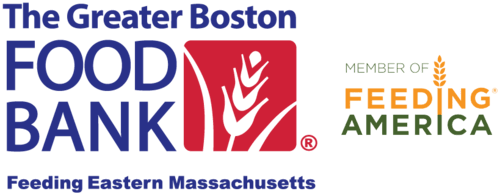GBFB & Mass General Brigham Release 5th Annual Statewide Food Access Report


FOR IMMEDIATE RELEASE
The Greater Boston Food Bank Releases Fifth Annual Food Access Study with Mass General Brigham,
Revealing 2 Million Food-Insecure Adults in Massachusetts and Examining the Human and Economic Costs of Hunger
“Very low food insecurity” reaches alarming high; report quantifies cost of hunger on household health, productivity, and healthcare spending; estimated $2 billion annual investment required to address food insecurity
(Boston, MA) June 17, 2025 – The Greater Boston Food Bank (GBFB), in collaboration with Mass General Brigham has released its fifth annual statewide food access report, Food Access in Massachusetts: The Cost of Hunger, confirming that hunger is not a temporary crisis but a persistent and deepening challenge that only continues to compound with Massachusetts’ affordability crisis. Approximately 2 million Massachusetts adults—over 1 in 3 residents— faced food insecurity in 2024, and an alarming 24% faced very low food insecurity. The study was spearheaded by Dr. Lauren Fiechtner, GBFB’s Senior Health and Research Advisor, Director of Nutrition and Pediatric Gastroenterologist at Mass General Brigham for Children, and Associate Professor at Harvard Medical School.
Topline Findings
- Food Insecurity: 37% of Massachusetts households faced food insecurity in 2024, rising from 34% in 2023 and nearly doubling from 19% in 2019. Very low food insecurity – the most severe form, occurring when an individual must skip meals or not eat for the entire day because they don’t have enough money for food – has nearly quadrupled to 24% in 2024 from 6% in 2019, pointing to widening socioeconomic gaps.
- Demographic Data and Disparities: Black households (46%), Hispanic households (62%), and LGBTQ+ households (56%) continue to experience outsized food insecurity.
- County-Level Data: Franklin and Hampshire Counties, Hampden County, Bristol County, and Suffolk County had the highest rates of food insecurity this year, with 1 in 2 households reporting food insecurity.
- Nutrition & Health Implications: 58% of food-insecure households reported low nutrition security, measuring an individual’s access not just to enough food but also to healthy foods, compared to 55% in 2023. Meanwhile, 67% of adults in food-insecure households reported having at least one chronic health condition.
- Financial Costs: The report concludes that solving food insecurity in Massachusetts would require up to $2 billion annually or an average of $62 per week per food insecure household. Because of the additional needs of low-income, food-insecure households, the authors further estimate that $7.5 billion would be needed to address the full range of basic needs (food, housing, utilities, transportation, childcare, healthcare, etc.) for food-insecure households.
- Health Care Costs: 40% of respondents in food-insecure households reported forgoing necessary medical, dental, or prescription care, which is five times the rate in food-secure households, with prescription medication being the more frequently foregone service (68%).
- Health System Costs: Based on this year’s survey findings and medical expenditure data, up to an estimated $1.3 billion in emergency room and inpatient hospitalization costs in MA may be related to food insecurity. The report estimates that hospitalizations that could be attributed to food insecurity among Medicaid recipients total up to $878 million annually for adults and $373 million for children.
- Social Costs: For the first time, the study also examined hunger’s impact on social well-being and connectedness, finding that only 58% of the food-insecure households surveyed voted in an election in 2024, compared to 82% of their food-secure counterparts. Food-insecure households were also less likely to volunteer, attend community events, or feel safe and supported in their neighborhoods.
The sustained prevalence of food insecurity can be attributed to the lasting, devastating impacts of the pandemic; surging expenses associated with groceries, housing, and utilities in Massachusetts. Meanwhile as pandemic-era support has receded and uncertainty around the future of federal programs exists, the gaps are expected to widen, placing even greater pressure on families, charitable organizations, local economies, and healthcare systems.
“Hunger is not just an individual issue, it is a public emergency with an astronomical economic and human cost,” said Catherine D’Amato, President and CEO of The Greater Boston Food Bank. “This report tells us that hunger is doing profound and lasting damage to our neighbors’ health, nutrition, financial stability, and social connectedness. Even so, we maintain that hunger truly can be a solvable problem when there is a collaborative and multi-sector approach – especially in Massachusetts, a state where there is a proven legacy of responsive and creative solutions to care for our neighbors in need. Yet, the solution to this problem demands supportive federal and state government policy, ongoing private and public commitment, and assistance from and for the essential organizations that comprise our charitable food bank network, including food pantries, shelters, and mobile markets.”
“Food insecurity doesn’t happen in isolation; it is one key social determinant of health in a network of interconnected and compounding affordability crises,” said Elsie Taveras, MD, Chief Community Health and Health Equity Officer at Mass General Brigham and member of the Health Equity Compact. “Food insecurity devastates our most vulnerable neighbors while placing preventable stress on our health system when hunger and nutrition insecurity turn into and exacerbate chronic health issues. These findings must renew our commitment to hunger relief for the sake of real community health outcomes, our health system, and our economy.”
Report Background and Proposed Solutions
This statewide survey originated during the COVID-19 pandemic to better understand the toll of widespread food insecurity and the role of assistance programs in easing it. Over the last five years, data from this annual report has helped to shape and improve experiences in the charitable food system, strengthen the integration of healthcare and hunger-relief efforts, and inform lawmaking and advocacy efforts. This report is funded by a USDA Reach and Resiliency grant supported through the Massachusetts Department of Elementary and Secondary Education (DESE).
“With this year’s study, we hope to continue providing timely data around the state of food insecurity while taking a more holistic look at how it is exacerbated by the concurrent affordability crises,” said Lauren Fiechtner, MD, GBFB’s Senior Health and Research Advisor, Director of Nutrition and Pediatric Gastroenterologist at Mass General Brigham for Children, and Associate Professor at Harvard Medical School. “These findings reveal the devastating human and economic cost of unmet basic needs, not just in lost productivity, but in the diminished potential of entire communities. The impact of hunger is felt not only by those facing it, but also by employers, health systems, and the state’s economy at large.”
The report proposes actionable policy and program recommendations to address the growing hunger crisis, including the preservation and expansion of nutrition programs like SNAP and WIC, integration of hunger-relief into health care settings, additional research, and prioritizing lived expertise.
Methodology
From November 2024 through March 2025, GBFB and Mass General Brigham conducted an online survey of more than 3,000 adults across Massachusetts, offered in English, Spanish, and Portuguese. For more information on the survey’s methodology, visit www.gbfb.org/Data
About The Greater Boston Food Bank
The Greater Boston Food Bank (GBFB) is the largest hunger-relief organization in New England and one of the largest food banks in the country. For nearly half a century, GBFB has fueled Eastern Massachusetts’ hunger-relief system, putting nearly 90 million healthy meals on tables across the region each year. Over 600 community-based pantries and other local partners in 190 cities and towns depend on GBFB to provide access to healthy food for 600,000 people every month. GBFB is committed to the belief that access to healthy food is a human right regardless of an individual’s circumstances. Through policy, partnerships, and providing free, nutritious, and culturally responsive food, GBFB is committed to addressing the root causes of food insecurity while promoting racial, gender and economic equity in food access. Together, we have the power to end hunger here. For more information and to help us help others, visit us at GBFB.org, follow us on Facebook, Twitter (@gr8bosfoodbank) and Instagram, or call us at 617.427.5200.
About Mass General Brigham
Mass General Brigham is an integrated academic health care system, uniting great minds to solve the hardest problems in medicine for our communities and the world. Mass General Brigham connects a full continuum of care across a system of academic medical centers, community and specialty hospitals, a health insurance plan, physician networks, community health centers, home care, and long-term care services. Mass General Brigham is a nonprofit organization committed to patient care, research, teaching, and service to the community. In addition, Mass General Brigham is one of the nation’s leading biomedical research organizations with several Harvard Medical School teaching hospitals. For more information, please visit massgeneralbrigham.org.
Media Contact
Nate Hillyer
The Castle Group
M 860.574.5507
Media Contact for Mass General Brigham
McKenzie Ridings
mridings@mgb.org
M 617.224.8999
###
